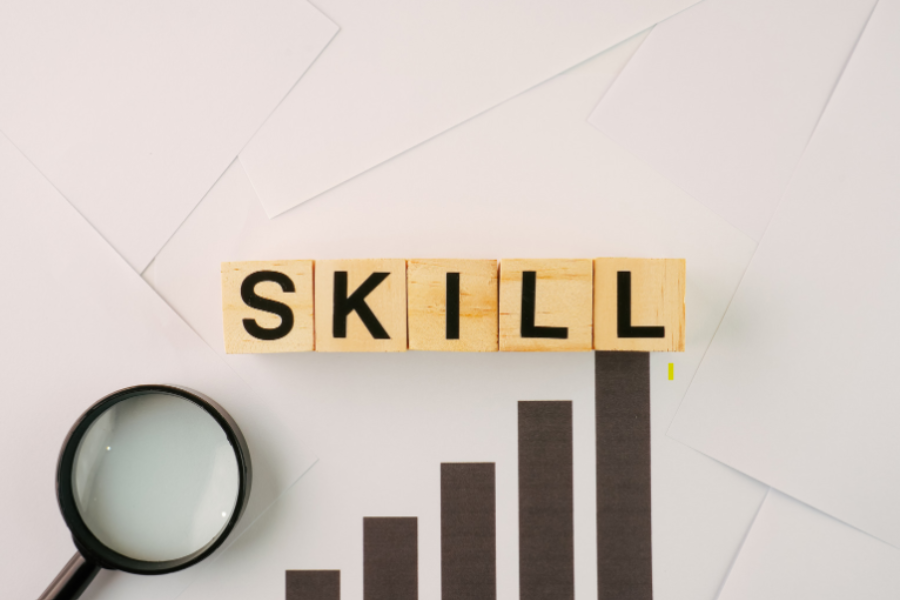What To Expect and Ask At Your Final Stage Interview
Making it to a final stage interview is both exciting and daunting. If you've got this far, it means that your potential employer is seriously considering offering you a position. However, you'll still be competing against a selection of other, equally qualified candidates.
Ensuring you’re properly prepared to make the right impact on a hiring manager or business leader is crucial to ensuring you don’t stumble at the last hurdle.
How well you demonstrate your hard and soft skills, and knowledge, as well as a strong level of cultural fit, will determine whether you walk away with the role you want.
Here, we’ll guide you through the process of preparing for a final stage interview, discussing everything from the research you’ll need to conduct, to the questions you should ask.
The First Step: Demonstrating Cultural Fit
The first step in being successful in your final stage interview, involves carefully researching the culture of the company you want to work for. The chances are you’ll already have a basic knowledge of things like team dynamics and business values, based on previous interviews and assessments and information from your recruitment consultant.
At this stage, it’s important to refine your understanding of the company’s culture, so you can demonstrate how well you’ll fit into the organisation. According to a study from Glassdoor, up to 25% of new hires leave a role within 6 months, and one of the most commonly cited reasons, is poor cultural fit.
Since employers don’t want to waste time and money replacing new hires, they often use the final stage of the interview process to evaluate cultural fit carefully. Being able to demonstrate that you understand and share the company’s values will make you a more compelling option.
Dive into previous interview notes, examine the company’s website, and look for insights into the company’s goals, mission, and vision and how they align with your personal work vision. Consider if you have any anecdotes or stories you can share about previous projects you’ve worked on, that demonstrate potential cultural alignment.
For instance, if your company values intuition and creativity, you could talk about a previous project you launched, and how it benefited a previous employer.
Showcasing Your Skills and Experience

While your CV, and previous interviews or assessments should have given your potential employer insight into your skills or experience, many will still use the final interview to gather additional information. They’ll be looking for specific examples of your expertise, and how your competencies align with their specific needs.
Prepare some “STAR” (Situation, Task, Action, Result) stories to dive deeper into your experience. Outline achievements with clear numbers or statistics, and remember to base your responses on what you know about the company and the responsibilities of the role.
While it’s important to showcase your technical skills, don’t forget to draw attention to relevant soft skills too. Showing a high level of resilience and adaptability will significantly boost your chances of getting the right role.
Highlighting important transferrable skills, such as the ability to problem solve, collaborate cohesively with team members, and lead others can also be extremely helpful. Remember to convey confidence in your abilities, but know when to acknowledge your weaknesses, and discuss what you’re going to do to overcome them, such as investing in additional training.
Showing a growth mindset and commitment to continuous learning and improvement can give you an edge over other candidates, even if they have more experience than you.
Asking Insightful Questions

The final stage interview isn’t just an opportunity for potential employers to evaluate your suitability for a role. It’s also your opportunity to learn more about the position the company, and the responsibilities you’ll have in this position.
Asking insightful questions demonstrates that you have a genuine interest in the role, and are committed to being the best possible new hire. It can also show you’ve done your research into the company, showing you have initiative and drive.
Consider asking questions such as:
- What are the key performance indicators you’ll be tracking in my work?
- How would you describe your company’s approach to professional development?
- Which staff members will I be working with on a daily basis?
- What would you say your number one goal is for the company in the next year?
- What would you consider to be the biggest challenge for someone starting in this role?
- Which skills would be most important for me to develop when I start this role?
- How does your company show a commitment to diversity, equity, and inclusion?
- What does your typical onboarding process involve?
When formulating a list of questions, look for ways to show your focus on delivering value to your employer. Be careful not to ask questions that are clearly answered by the job description, or the company’s website.
Preparing for Different Interview Formats
Only around 20% of the people who apply for a role will reach the final interview round, and each company can take a different approach to how they manage the interview process.
Some companies, looking to save time and money on the recruitment process, will conduct virtual interviews using video conferencing software. If your employer takes this approach, make sure you treat the virtual interview just like any other interview. Don’t assume the conversation is casual or informal, just because you’re not attending an office in-person.
Different companies will also add different elements to the interview process. Some will ask you to talk with a panel of business leaders, others will ask you to present case studies from your past work, or take technical assessments.
If you’re not sure which approach your potential employer will take, you can ask the hiring manager or recruitment company you work with what the interview will involve so you can prepare.
Make sure you familiarise yourself with the company’s products, services, and goals, and research the trends in the industry when preparing responses to possible questions. It can also help to host “practice” interviews with friends or family members. This should boost your confidence, and help you identify any issues with body language or anxiety before the interview.
Preparing for Your Final Stage Interview
Reaching the final stage of the interview process means you've shown a hiring manager or team that you potentially have the skills and experience required to excel in their role. However, if you fail to impress during the interview, you could miss out on a job offer.
By researching the company’s culture, demonstrating your skills and experience, and asking insightful questions, you can maximise your chances of success.
Preparing for different interview formats will also ensure you have the confidence you need to excel during this stage.
Remember, regardless of the outcome of this interview, you should view it as a valuable learning experience that you can use to support your career path and professional development. If you’re unsuccessful, ask your recruitment company or the hiring manager for feedback on how you can improve and prepare for future interview success.
About First2Recruit
First2Recruit, are an owner managed recruitment consultancy providing a full recruitment service including; permanent, and FTC positions in Accountancy Practice and Insolvency across the UK.
Alternatively, visit www.first2recruit.co.uk, call 01722 440 168 or email office@first2recruit.co.uk